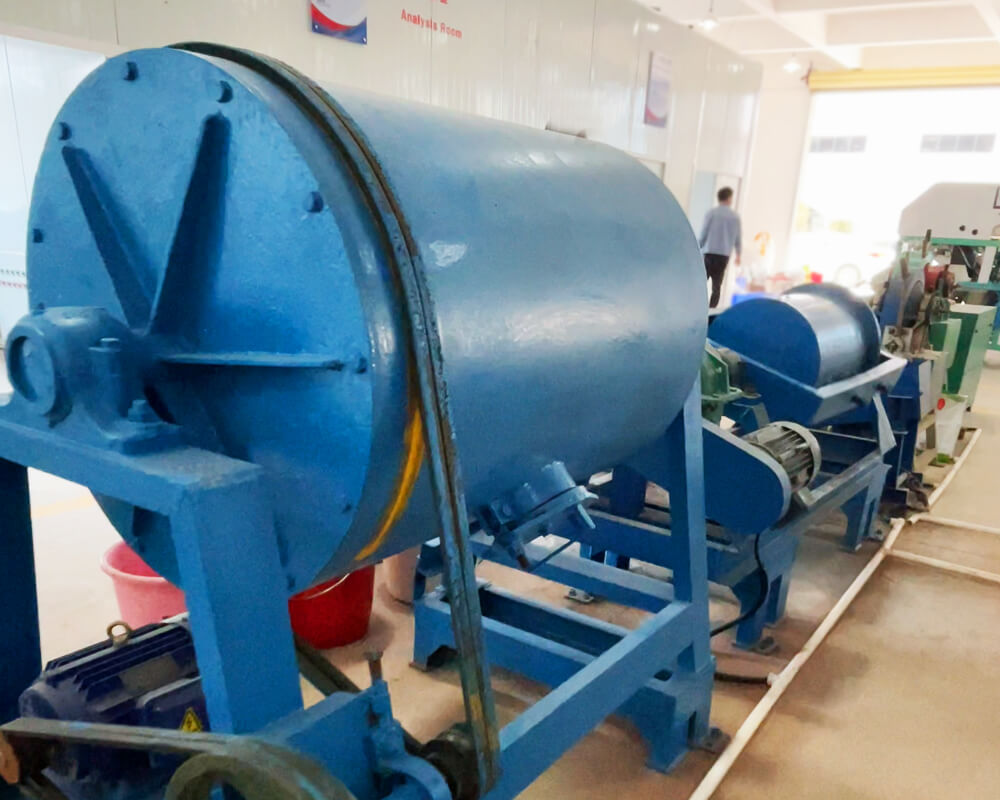Laboratory ball mills are essential tools for experiments and research in various fields, and each type has unique characteristics and functions. It is commonly used to grind, mix, and even homogenize multiple samples, allowing researchers to fine-tune their experimental processes. The design and operation of laboratory ball mills allow precise control of particle size distribution and composition, making them indispensable in laboratory or scientific research institute industries such as mineral testing, pharmaceuticals, ceramics, and nanotechnology. With advanced features such as variable speed settings and programmable controls, these grinders enable scientists to tailor experiments to specific requirements with unprecedented precision.

Types of Laboratory Ball Mill
1. Lab Cylinder Ball Mill
The cylindrical design makes the rotation smooth and uses the gravity inside the rotating drum to effectively grind different materials and ensure that the materials are evenly mixed. Its compact size makes it suitable for small-scale laboratory experiments, allowing researchers to test various ingredients and formulations easily.
The main advantage is its versatility in handling different materials, from powders to liquids. This flexibility provides opportunities to explore new applications in pharmaceuticals, cosmetics and chemical engineering industries. Additionally, its ability to operate at controlled temperatures enhances experimental reproducibility, providing reliable data for analysis and optimization.
2. Laboratory Rod Mill
A laboratory rod mill is an important piece of equipment in mineral processing and metallurgy. Its unique design allows for continuous grinding action, making it suitable for testing small samples to predict full operating conditions in industrial environments.
The main advantage is its adaptability to various ore types and feed sizes. This flexibility enables researchers and engineers to study how different materials behave under specific grinding conditions, providing valuable insights into process optimization and product quality control.
3. Lab cone Ball Mill
Laboratory cone ball mills are essential tools in materials research and development, offering a unique combination of power and precision. The compact design integrates easily into existing workflows, providing a versatile solution for various applications. From pharmaceuticals to ceramics to mineral processing, its ability to grind, mix, and homogenize small quantities of materials makes it an essential instrument for laboratories and small production facilities.
The main advantage is its efficient energy use, resulting in minimal heat generation during operation. This property increases safety and preserves the integrity of the sensitive materials being processed.
4. Laboratory Attritor Ball Mill
The laboratory attritor ball mill is a unique grinder that uses high-energy impact and friction to produce a fine powder. This ball mill has a rotating shaft with arms or discs that ensure efficient grinding by continuously stirring the media under controlled conditions.
The main advantage is its versatility in processing different materials, including ceramics, metals and polymers. Its ability to produce uniform particle size and narrow particle size distribution makes it the first choice for producing finely dispersed suspensions or high-quality powders for further analysis. It also enables precise control of process parameters such as grinding time, speed, temperature and energy input.
5. Lab Ceramic Ball Mill
Laboratory ceramic ball mills are versatile, efficient tools used in various research fields, including materials science, chemistry, and pharmaceuticals. One of its main features is quickly grinding and mixing materials to produce a uniform powder or suspension.
This ball mill ensures minimal contamination during grinding, making it ideal for sensitive experiments. Its ease of use and cleaning procedures make it convenient for researchers looking to streamline their materials processing workflow.
These laboratory ball mills can effectively reduce particle size to the nanometer level. It provides an effective solution for continuously dispersing solid materials into powder and has been widely used in industries such as mineral testing, pharmaceuticals, cosmetics manufacturing, and food processing. From planetary to ceramic ball mills, the variety of designs and features ensures laboratories can find the right equipment for their experiments. They can process various types of samples and produce uniform particles. Asia and Africa International provides various mineral sample testing services and equipment; contact us for more details!
